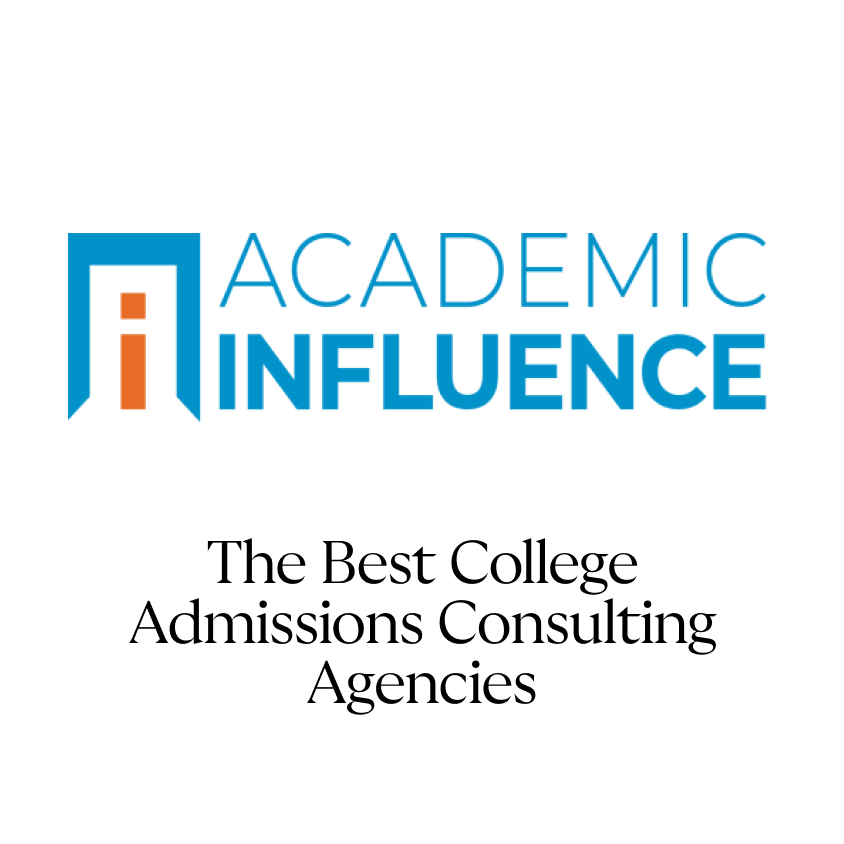
Graduate School
Admissions Counseling

Why Choose IvyWise Graduate Admissions Services?
The graduate school admissions process is competitive, and the majority of applicants are well-qualified for the programs to which they apply. Your IvyWise counselor will provide expert guidance on how to make your application stand out from the crowd.
IvyWise’s holistic approach to counseling takes into account your whole applicant profile and goals — empowering you to identify and utilize your strengths and interests to craft the most compelling applications.
You will work with your dedicated counselor to complete your applications before submitting them to the IvyWise Roundtable — a mock admissions committee made up of our entire graduate admissions counseling team. Simulating the real-world application review process, the IvyWise Roundtable thoroughly reviews each application, providing constructive feedback you can implement before hitting ‘submit’ to your top-choice graduate school programs. Through IvyWise Roundtable, you will benefit from over 100 years of direct experience in graduate admissions and advising.
In a graduate counseling program at IvyWise, your counselor will:
Help you research and identify best-fit schools and programs, plan visits, and prepare for interviews.
Provide feedback on and make suggestions for prerequisite coursework.
Guide you through the application process, including essays, personal statements, and statements of purpose.
Assess your work experience, refine your resume/CV, and advise on how to compile any necessary portfolios.
Suggest contacts in your personal and professional networks to approach for letters of recommendation.
How Does IvyWise Graduate School Admissions Counseling Work?
Medical School Admissions Counseling
Learn More
IvyWise’s expert medical school admissions counselors have held senior admissions positions at top medical schools in the U.S., including Stanford, MIT, and UCLA. Your medical school admissions counselor will work with you to develop an application strategy to help you organize the application process and make it manageable, efficient, and effective.
We will guide you through all aspects of the application process, including researching and identifying schools and programs of interest, planning testing schedules, evaluating MCAT scores, refining your resume, compiling portfolios, preparing for interviews, and more. IvyWise will alleviate some of the stress and anxiety, regardless of where you are in the admissions process.
Medical School Interview Prep Consultation
Looking for targeted guidance for medical school interviews? IvyWise offers Medical School Interview Prep Consultations to help you prepare for this crucial part of the admissions process.
In the consultation, you will work with one of our expert counselors to understand the different types of interviews and how to prepare for each one you are offered. Our experts will help you tailor your interview responses to highlight your achievements, incorporating information from the AMCAS primary and secondary applications. Your IvyWise counselor will provide you with all the tools necessary to ace your medical school interviews — putting you in the best position for admission to your top-choice programs.
Business School Admissions Counseling
Learn More
Our expert business school admissions counselors have extensive experience in admissions at some of the country’s top business school programs, such as MIT’s Sloan School of Management and UPenn’s Wharton School. They know what admissions committees are looking for and how to help you stand out from your peers.
You will be advised on all aspects of the MBA/business school admissions process, including prioritizing and honing a list of programs to apply to; evaluating application submission timing and strategy; brainstorming, drafting, and refining personal statements and essays; evaluating your resume, GMAT/GRE scores, portfolio submissions, and/or business plans; preparing for interviews, and more.
Law School Admissions Counseling
Learn More
Our experienced law school admissions counselors have held senior admissions positions at Columbia Law School and other selective institutions. With your counselor’s expertise, you will develop an application strategy, organize the application process, and identify law programs that best suit your needs and goals.
Your counselor will guide you through all aspects of the admissions process, including evaluating your undergraduate transcript and LSAT scores, refining application essays, preparing for interviews, selecting professors for letters of recommendation, and more. Once you receive offers of admission, your counselor can help you evaluate your options and choose the law program that’s the best fit for you.
Other Graduate School Admissions Counseling
Learn More
IvyWise’s expert graduate admissions counselors all have direct experience in graduate admissions, so they know what makes you a standout applicant. Your counselor will work with you to develop an application strategy, identify prerequisite coursework, prepare for interviews, refine application essays, develop a testing plan for the GRE, and more.

Graduate School Admissions Tutoring and Test Prep
IvyWise expert tutors provide support for applicants preparing for graduate school entrance exams. Our tutors will focus on the specific areas that need strengthening and teach at the pace appropriate for you. IvyWise tutors are well versed in preparing prospective graduate students for all graduate school tests, including:
- GRE
- GRE Subject Tests
- GMAT
- MCAT
- LSAT
- TOEFL
What Others Are Saying About IvyWise

Best Law School Admissions Consulting (#7)

2022 College Admissions Consultants Ranking (#1)

The Best College Admissions Consulting Agencies

The Best College Admissions Consulting Companies of 2020

The Best of Manhattan: Best Admissions Counselor
Get Your Graduate School Admissions Journey on the Right Track
The first step to enrolling in a customized IvyWise Graduate School Admissions program is scheduling an Initial Consultation. Following a thorough review of your profile, you’ll meet with the IvyWise expert counselor of your choice for 90 minutes to go over a personalized, strategic action plan to help you achieve your academic and personal goals. This consultation also allows your counselor to make the best recommendation for ongoing work to fit your needs and goals.
Contact our enrollment team today to get started.

FAQs About Graduate Admissions Counseling
What are graduate admissions offices looking for in my application, and how will my IvyWise counselor help?
Learn More
Graduate admissions officers are looking at a variety of components in your applicant profile including: undergraduate transcripts and GPA, test scores from relevant admissions exams, your resume, letters of recommendation, writing samples, an interview, and your application essays. Through each application, admissions offices are looking for fit to their school and program. How have your accomplishments led you to apply to this school/program? Why do you want to attend? What will you add to the institution? What will you do with a degree from this school upon graduation? An IvyWise graduate admissions counselor will help weave the answers to these questions through your application materials, painting a clear picture of why you are best suited for their program and how you will positively contribute to their campus.
What will my graduate admissions counselor and I work on throughout my program?
Learn More
Your IvyWise counselor is available to assist you with any and all pieces of the application process for medical, MBA, law school, or general graduate school admissions. Whether you are seeking support on early application tasks such as refining your resume, finding suitable programs, or building a school list — or simply want expert guidance on your application essays — your expert counselor is ready to meet your needs through a personalized program.
What will my graduate admissions counseling meetings look like?
Learn More
Throughout your program, you will meet with your counselor to review the various elements of your application profile. In early meetings, you may be discussing ways to bolster your profile with additions of leadership positions or volunteer opportunities. In meetings closer to your application season, you and your counselor will discuss a school list and application strategy. When the time comes to complete your applications, you and your counselor will spend time editing your essays and carefully crafting them to tell your unique application story. Upon submission, your counselor is available to help you prep for interviews, address any questions that arise, advise on a deferral/waitlist strategy, and help you select the best-fit school in which to matriculate.
Why should I work with an IvyWise Graduate Admissions counselor?
Learn More
The graduate school admissions process is competitive, and the majority of applicants are well-qualified for the programs to which they apply. An IvyWise counselor will provide expert guidance on how to make your application stand out from that crowd. All of our counselors have sat in the room where admissions decisions are made and know how to highlight aspects of your profile that will give you the best chance of admission. In an IvyWise graduate admissions counseling program, you will have the added benefit of our IvyWise Roundtable and the collective experience of our larger counseling group, wherein our entire grad counseling team reviews your application and provides recommendations for improvement.












